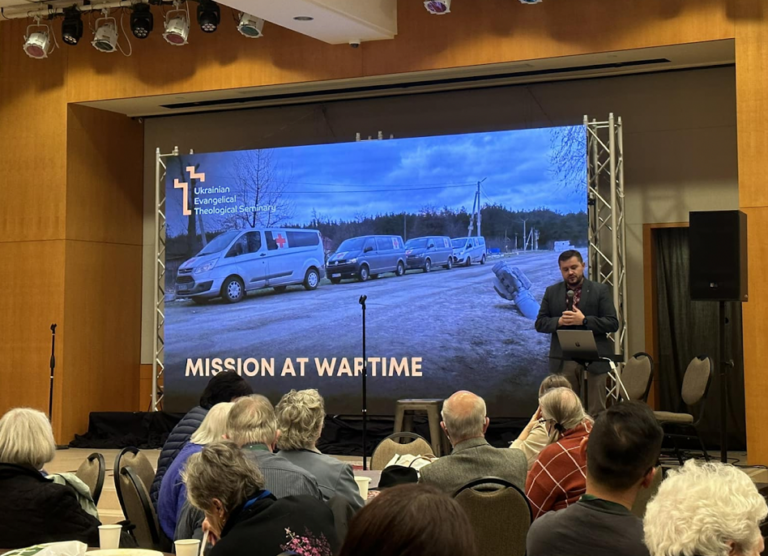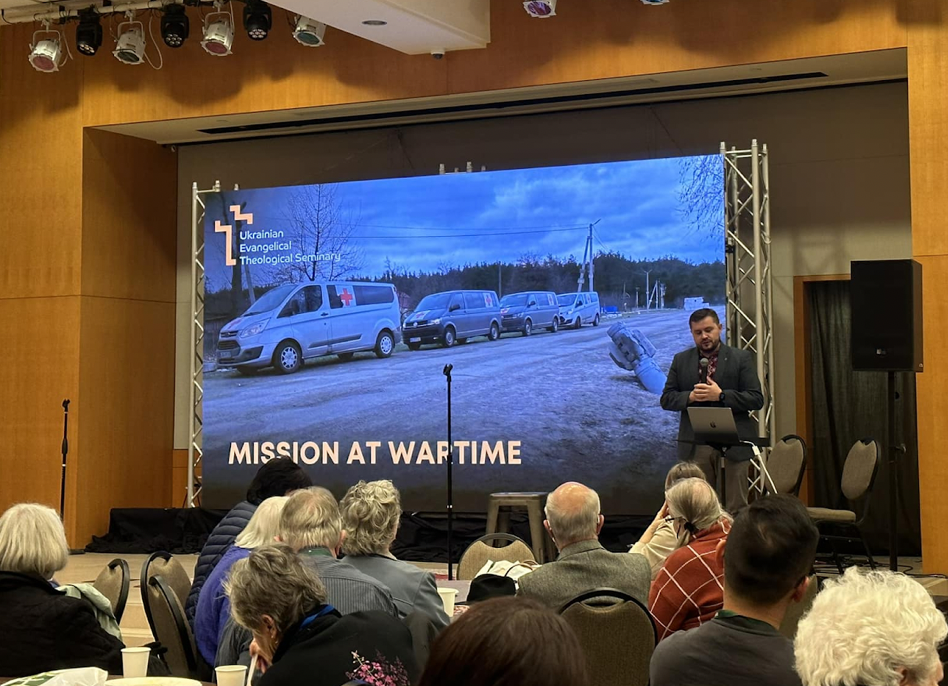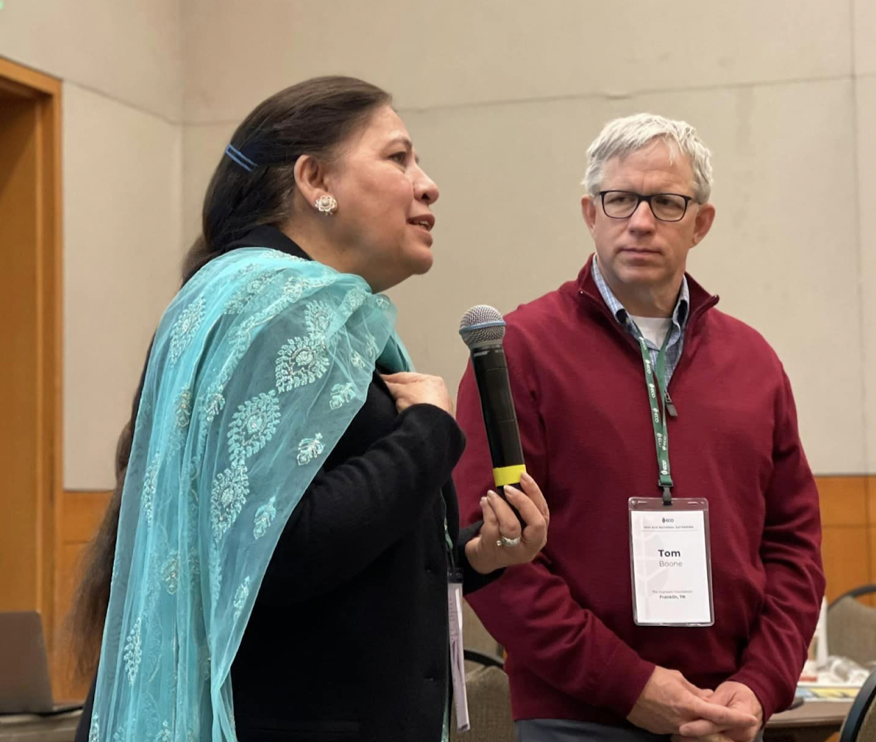 Flourishing Next Step
Flourishing Next Step
By Dana Allin, ECO Synod Executive One day in July I had six appointments with p...
 Flourishing Next Step, Newsletter
Flourishing Next Step, Newsletter
By: ECO Team
Discipleship is inherently a local thing. But, people are learning to follow Jesus all over the world. And of course, Jesus said, “make disciples of all nations” (Matthew 28:19). Discipleship is a space where the local and global witness of our churches can experience transforming synergy through our fellowship and partnership in the gospel. As one participant in the global engagement events at the National Gathering expressed, “It makes me want to grow as a resilient follower of Jesus when I see how our sisters and brothers in Ukraine are responding.”
This year’s global guests at the National Gathering provided very insightful witness of how they are making disciples in challenging contexts. Though our context for discipleship in ECO churches does not include life-threatening persecution or war, we do make disciples in places where people have experienced trauma and are increasingly coming from non-Christian backgrounds. As we listened to the witness of these partners, we were encouraged and challenged to consider how their disciple-making initiatives can sharpen our models for discipleship.

From the Gulf region, we heard a challenge to make discipleship about life-on-life transformational relationships, where both the disciple and disciple-maker are being transformed into the likeness of Christ. These faithful friends (who must remain anonymous for security) are now developing disciple-makers among people from a Muslim faith background. As these disciples are set free in Christ, they face the risk of persecution, which makes building a trusting community a key challenge. Their model for developing an authentic Chrisitan community is a witness to our efforts in ECO to be a covenant order of leaders. How are we building trust and accountability into our leadership teams?
From the Iranian context, Shadi Fatehi from Pars shared about the need to take seriously the mental and emotional health challenges for both the leader and disciple. Trauma-informed discipleship means that they offer not just spiritual formation, but trained counseling services to accompany a disciple’s transformation in Christ. How are our leadership development initiatives in our churches caring for whole-person transformation and taking seriously the mental and emotional health needs of our people?
From Pakistan, Veda Gill shared about the incredible witness of the Presbyterian Education Board in Pakistan, who provide quality education for both Christian and Muslim students. Bringing boys and girls together from these different religious backgrounds in classrooms is a witness of peace-building. We heard incredible stories of how the children’s experience of Christian values in the schools are impacting whole families and neighborhoods. We were inspired to ask ourselves, how are we bringing a gospel message of peace to our communities that experience racial, ethnic or religious tensions?

From Ukraine, Ivan Rusyn offered a powerful testimony of how the war has brought the church literally out into the streets. Discipleship is now about living out the love of God in tangible expressions. Remaining with the people in this war-torn country has been a testimony not only to the strangers who need a warm meal served at the Ukrainian Evangelical Theological Seminary. This witness has also been recognized by the government and military leaders who can now see the power of the gospel in action. We were challenged to pray for the church in Ukraine to persevere in its witness, but also encouraged to consider how our witness for Christ is visible to the world.
Even as we provide prayer, encouragement, and needed financial support to these global partners, they have much to offer us as we seek to strengthen our local discipleship efforts. If you would like to connect further with any of these global partners, please email globalengagement@eco-pres.org for more information.
 Flourishing Next Step
Flourishing Next Step
By Dana Allin, ECO Synod Executive One day in July I had six appointments with p...
 Newsletter
Newsletter
This year our family did something new when it came to decorating for Christmas....
 Flourishing Next Step, Newsletter
Flourishing Next Step, Newsletter
Over Christmas break, I was thinning out some of my books in my regular and home...